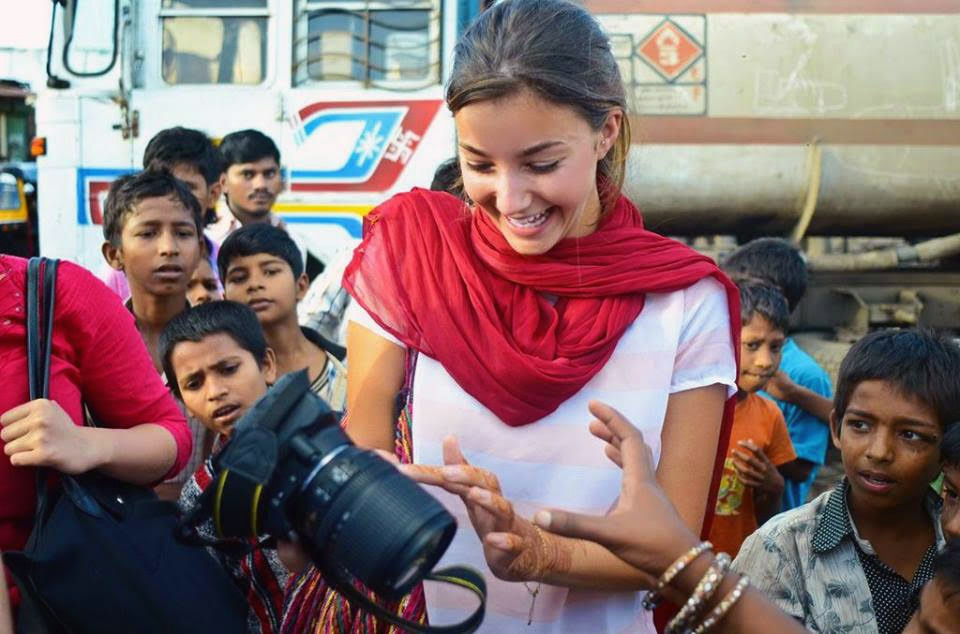Alexa Liautaud ’12

Raised in London by an American mother and a French father, journalist Alexa Liautaud ’12 has always had a global focus. When she arrived at Exeter as an upper, the expat expanded her worldview even more. Classes in Arabic and Middle Eastern history, as well as her experience at Seeds of Peace working with teens from Israel and Palestine to overcome political conflicts, fed her fascinations.
The passionate and civic-minded Exonian continued studying history, specifically war and counterinsurgency conflict, as well as Middle Eastern languages, literature and culture at Stanford and got her first taste of media life as an intern with Bloomberg News. “Behind the headlines on the Middle East — the war in Syria, the Arab-Israeli conflict and the underlying humanitarian crises — there are people,” Liautaud says. “There are authentic stories waiting to be uncovered and inspire positive change.”
Liautaud went on to earn a master’s degree in reporting and short-documentary filmmaking from the Columbia University Graduate School of Journalism in 2017 and took a job as a reporter and an associate producer for HBO’s VICE News Tonight covering both domestic politics and foreign conflicts. Today, she is a correspondent for NBC News Now, where she has investigated life as a Chicago public school teacher; the processing of terrorism-related crimes in the U.S. courts; and the possibility of a cyber war with Iran. We caught up with her in New Hampshire on the U.S. presidential campaign trail.
What prompted you to go into journalism?
At Stanford, I chose to write my honors thesis on a province in Afghanistan that witnessed enormous upheaval alongside a rotating American military presence. I was working with disparate primary sources, cables between generals, old books, speeches. The war undoubtedly spurred an interest in seeking the truth from leaders making momentous and costly decisions for the American people.
Do you often have to set personal politics aside when reporting a story?
My personal opinions are much less important than my ability to shine light on how others see and experience the world. It’s rewarding to spend time with people and listen to their stories, with all of their complexities, caveats and nuances. Being involved with Seeds of Peace improved not just my empathy, but my ability to actively listen to those I did not agree with — two key qualities necessary to succeed as a journalist.
What do you see as the future of journalism?
The question is, can we, as journalists, be nimble enough to capitalize on new platforms and technologies while our institutions evolve their ethical policies and business models in tandem? It’s a privilege to be a journalist focused on a young and savvy audience, without pressure to sacrifice quality and accuracy. While I may have complained in the past about my generation’s attention span, it’s actually been an incredible gift for me as a correspondent, as I’ve been forced to improve my writing. Platforms will undoubtedly evolve, as will the mechanisms through which we capture the news, but if journalism is the act of seeking truth, then I believe it will continue to exist.
Editor’s note: This article first appeared in the winter 2020 issue of The Exeter Bulletin.